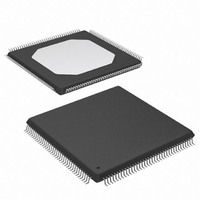XC3S100E-4TQG144I Xilinx Inc, XC3S100E-4TQG144I Datasheet - Page 29

XC3S100E-4TQG144I
Manufacturer Part Number
XC3S100E-4TQG144I
Description
IC FPGA SPARTAN-3E 100K 144-TQFP
Manufacturer
Xilinx Inc
Series
Spartan™-3Er
Datasheet
1.XC3S100E-4TQG144I.pdf
(193 pages)
Specifications of XC3S100E-4TQG144I
Package / Case
144-TQFP, 144-VQFP
Mounting Type
Surface Mount
Voltage - Supply
1.1 V ~ 3.465 V
Operating Temperature
-40°C ~ 100°C
Number Of I /o
108
Number Of Logic Elements/cells
*
Number Of Gates
*
Lead Free Status / RoHS Status
Lead free / RoHS Compliant
Available stocks
Company
Part Number
Manufacturer
Quantity
Price
Company:
Part Number:
XC3S100E-4TQG144I
Manufacturer:
XILINX/21
Quantity:
163
Company:
Part Number:
XC3S100E-4TQG144I
Manufacturer:
Xilinx Inc
Quantity:
10 000
Part Number:
XC3S100E-4TQG144I
Manufacturer:
XILINX/赛灵思
Quantity:
20 000
Functional Description
Table 11: Carry Logic Functions (Continued)
The basic usage of the carry logic is to generate a half-sum
in the LUT via an XOR function, which generates or propa-
gates a carry out COUT via the carry mux CYMUXF (or
CYMUXG), and then complete the sum with the dedicated
XORF (or XORG) gate and the carry input CIN. This struc-
ture allows two bits of an arithmetic function in each slice.
The CYMUXF (or CYMUXG) can be instantiated using the
MUXCY element, and the XORF (or XORG) can be instan-
tiated using the XORCY element.
22
Figure 20: Using the MUXCY and XORCY in the Carry
CYMUXG
CYSELF
CYSELG
XORF
XORG
FAND
GAND
Function
B
A
Carry generation or propagation mux for top half of slice. Dynamic selection via CYSELF of:
• CYMUXF carry propagation (CYSELG = 1)
• CY0G carry generation (CYSELG = 0)
Carry generation or propagation select for bottom half of slice. Fixed selection of:
• F-LUT output (typically XOR result)
• Fixed "1" to always propagate
Carry generation or propagation select for top half of slice. Fixed selection of:
• G-LUT output (typically XOR result)
• Fixed "1" to always propagate
Sum generation for bottom half of slice. Inputs from:
• F-LUT
• CYINIT carry signal from previous stage
Result is sent to either the combinatorial or registered output for the top of the slice.
Sum generation for top half of slice. Inputs from:
• G-LUT
• CYMUXF carry signal from previous stage
Result is sent to either the combinatorial or registered output for the top of the slice.
Multiplier partial product for bottom half of slice. Inputs:
• F-LUT F1 input
• F-LUT F2 input
Result is sent through CY0F to become the carry generate signal into CYMUXF
Multiplier partial product for top half of slice. Inputs:
• G-LUT G1 input
• G-LUT G2 input
Result is sent through CY0G to become the carry generate signal into CYMUXG
LUT
COUT
CIN
Logic
MUXCY
XORCY
Sum
DS312-2_37_021305
www.xilinx.com
Description
The FAND (or GAND) gate is used for partial product multi-
plication and can be instantiated using the MULT_AND
component. Partial products are generated by two-input
AND gates and then added. The carry logic is efficient for
the adder, but one of the inputs must be outside the LUT as
shown in
duplicate one of the partial products, while the LUT gener-
ates both partial products and the XOR function, as shown
in
Figure 21: Using the MULT_AND for Multiplication in
Figure
A
B
m+1
A
n+1
B
m
n
21.
Figure
MULT_AND
LUT
20. The FAND (or GAND) gate is used to
Carry Logic
Advance Product Specification
DS312-2 (v1.1) March 21, 2005
COUT
CIN
DS312-2_39_021305
P
m+1
R
















